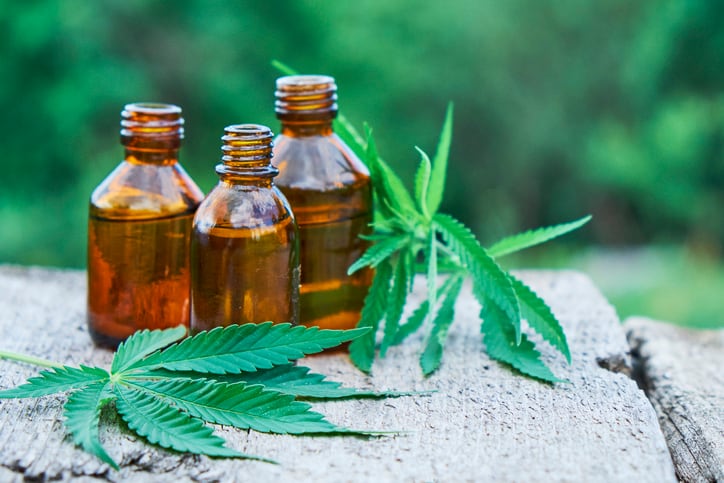Have you ever felt that nagging tension at the end of a long day, or struggled to unwind when your mind won’t switch off? In recent years, more and more people across the UK have turned to CBD as a natural way to find balance. Cannabidiol, or CBD, has exploded onto the scene, popping up in health shops, online stores, and even conversations at dinner tables. But what exactly is it, and why is it making such waves here in the UK?
CBD comes from the hemp plant, a cousin of cannabis, but without the mind-altering effects. It’s one of over 100 compounds called cannabinoids found in these plants. Unlike THC, the stuff that gets you high, CBD is non-psychoactive, meaning it won’t leave you feeling spaced out. Instead, it interacts with your body’s own systems to promote relaxation and wellbeing. Since around 2016, when the first quality products hit the market, the UK has embraced CBD wholeheartedly. Today, in 2025, it’s a multi-billion-pound industry, with shelves stocked full of oils, edibles, and creams promising everything from better sleep to eased aches.
Navigating the Legal Landscape
One of the biggest questions people ask is, “Is CBD legal in the UK?” The short answer is yes – as long as it meets strict guidelines. Back in 2018, the government rescheduled CBD UK from a medicine to a food supplement, paving the way for its growth. But there are rules to follow.
The key is THC content. Products must contain no more than 0.2% THC, and in practice, less than 1mg per container to stay fully compliant. This keeps them non-intoxicating and safe for everyday use. On top of that, reputable sellers ensure their items are listed on the Food Standards Agency’s (FSA) Novel Foods register. This means they’ve passed rigorous safety checks and can be sold legally.
Even in 2025, with talks of tighter ‘zero THC’ rules floating around, broad-spectrum and isolate options – which strip out THC entirely – remain popular choices. Flying with CBD? Stick to labelled supplements under the THC limit, and you’re good at UK airports. Medical cannabis is different, requiring prescriptions, but over-the-counter CBD UK is fair game for anyone over 18. Always check labels, though – quality varies wildly.
How Does CBD Actually Work?
At its core, CBD taps into your endocannabinoid system (ECS), a network of receptors throughout your body that regulates mood, sleep, appetite, and pain. Think of it like a master control panel that sometimes gets out of whack due to stress or illness.
When you take CBD, it doesn’t bind directly to these receptors like a key in a lock. Instead, it nudges them gently, encouraging your body to produce more of its own feel-good chemicals. This ‘entourage effect’ shines in full-spectrum products, where other plant compounds like terpenes and flavonoids team up with CBD for amplified results.
Studies suggest it influences serotonin levels for calmer moods, reduces inflammation signals, and even supports brain health. It’s not a cure-all, but for many, it’s a gentle nudge back to equilibrium.
Unlocking the Benefits: What Can CBD Do for You?
The real draw? Those potential perks. Let’s break them down.
Easing Anxiety and Stress: In a fast-paced world, who doesn’t need a bit of calm? CBD may lower cortisol, the stress hormone, helping you feel more centred. Users often report fewer racing thoughts and better focus after a few weeks.
Better Sleep: Tossing and turning? CBD could quiet an overactive mind without grogginess the next day. It promotes deeper rest by balancing your sleep-wake cycle.
Pain and Inflammation Relief: From sore muscles post-workout to nagging joint discomfort, CBD’s anti-inflammatory properties offer natural support. Athletes and those with active lifestyles swear by it for recovery.
Skin and Wellness Boost: Topicals like creams soothe dry, irritated skin or minor bumps. Internally, it might aid digestion or immune function, though more research is ongoing.
For pets, it’s a game-changer too. Dogs and cats deal with separation anxiety or arthritis just like us. Calming treats with hemp oil help them chill without drowsiness.
Evidence is promising but mixed – some trials show strong results for epilepsy (like Epidiolex, a prescribed CBD med), while others note benefits for MS spasms. Always chat with a doctor if you’re on meds, as interactions can occur.
Exploring Product Types
The variety is dazzling:
- Oils and Tinctures: The classic. Drop under the tongue for fast absorption. Flavours like mint or natural make them palatable.
- Capsules: Precise dosing, no taste – perfect for beginners.
- Edibles: Gummies or sweets for on-the-go bliss. Fun and discreet.
- Topicals: Creams and balms for targeted relief on skin or muscles.
- Patches: Slow-release for all-day support.
- Drinks and Pastes: Innovative ways to mix it up.
Full-spectrum keeps the plant’s full profile, broad-spectrum skips THC, and isolate is pure CBD. Pet lines focus on salmon oil blends for picky eaters.
Choosing and Using CBD Wisely
Start simple: Look for third-party lab tests (certificates of analysis) proving purity and potency. Vegan, organic? Bonus points.
Dosage? Begin low – 10-20mg daily – and go slow. Track how you feel over two weeks. Sublingual oils kick in quickest (15-30 mins), edibles take longer (1-2 hours).
Mix into your routine: Morning oil for focus, evening gummies for wind-down. Store in a cool, dark place.
Busting Myths
“Does it get you high?” Nope.
“Will it fail a drug test?” Unlikely if THC-free.
“Is it addictive?” No evidence.
Wrapping Up: Embrace the CBD Revolution
CBD isn’t hype – it’s a tool for modern life in the UK. With legal backing and growing science, 2025 is the perfect time to explore. Listen to your body, choose quality, and discover that subtle shift towards better days. Whether easing daily stresses or supporting your furry friend, CBD might just be the missing piece.

